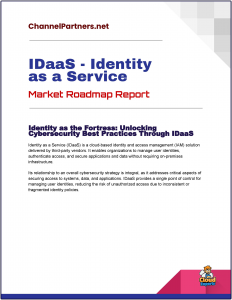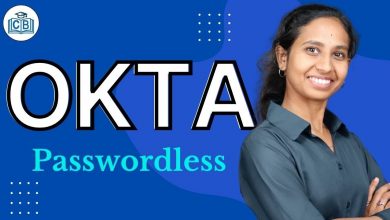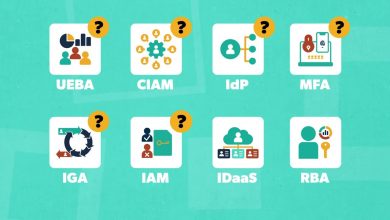Identity as a Service for Securing AI Agents
Exploring the pivotal role of identity authentication for autonomous AI agents and how MSPs can leverage IDaaS platforms to address these needs within their managed service offerings.
 As businesses accelerate their adoption of cloud-first strategies to drive scalability, efficiency, and innovation, the importance of robust cloud security has reached a critical juncture.
As businesses accelerate their adoption of cloud-first strategies to drive scalability, efficiency, and innovation, the importance of robust cloud security has reached a critical juncture.
With global cloud spending projected to surge by 21.5% in 2025 and 45% of data breaches now targeting cloud-based environments, organizations face escalating cyber threats in increasingly complex multi-cloud and hybrid ecosystems.
The rise of autonomous AI agents—intelligent systems capable of independent decision-making and task execution—introduces a new dimension to these challenges, amplifying the need for sophisticated identity authentication mechanisms.
Securing AI Agent Identities in Cloud Environments
The proliferation of autonomous AI agents marks a transformative shift in how businesses operate, with these systems handling critical functions across industries, from automating supply chain logistics to managing cybersecurity incident responses. However, their autonomy and integration into sensitive cloud environments introduce unique security challenges that necessitate robust identity authentication frameworks.
Autonomous AI agents, unlike human users, operate without direct human oversight, interacting with cloud applications, APIs, and sensitive data at scale.
Without proper identity authentication, these agents could become vectors for attacks, such as privilege escalation or unauthorized data access. For instance, a compromised AI agent could inadvertently expose sensitive customer data or disrupt critical operations.
These agents, increasingly deployed for tasks such as automated customer support, IT operations, and data analysis, require secure, verifiable identities to operate within organizational systems without introducing vulnerabilities. By aligning IDaaS capabilities with key cloud security trends—such as AI-driven threat detection, zero trust architectures, quantum-safe encryption, and Secure Access Service Edge (SASE)—MSPs can deliver a comprehensive suite of managed services.
These include centralized identity management, single sign-on (SSO), multi-factor authentication (MFA), and real-time monitoring, all tailored to secure both human and AI-driven interactions. This introduction sets the stage for a deep dive into how MSPs can harness IDaaS to authenticate and manage autonomous AI agents, ensuring compliance, mitigating risks, and empowering clients to thrive in a dynamic, AI-augmented cloud ecosystem.
[box type=”download” align=”” class=”” width=””]
 IDaaS – Identity as a Service
IDaaS – Identity as a Service
IDaaS is a foundational element of a modern cybersecurity strategy, serving as the backbone for secure identity management and access control.
MSPs can use IDaaS platforms to assign unique, cryptographically secure digital identities to AI agents, leveraging protocols like OAuth 2.0 or OpenID Connect. These identities ensure that only authorized agents can access designated resources. Features like certificate-based authentication and device attestation further validate the integrity of AI agents, preventing impersonation or tampering.
For Managed Service Providers (MSPs) deploying Identity as a Service (IDaaS) platforms, integrating robust identity authentication for autonomous AI agents is essential to delivering secure, future-proof managed services that safeguard client data while enabling seamless operations in the cloud.
[/box]
The Role and Need for Identity Authentication of Autonomous AI Agents
For example 1Password announced new Agentic AI Security capabilities for its Extended Access Management (XAM) platform, designed to secure and manage autonomous AI agents in enterprise settings.
These features address the growing security challenges posed by AI agents accessing sensitive systems and data, which traditional identity and access management tools, built for human users, are not equipped to handle.
1Password Extended Access Management will help enterprises distinguish between human and non-human users, apply access controls dynamically, and scale autonomous AI safely. 1Password enables productivity and enterprise-grade security by eliminating hardcoded secrets, supporting least-privilege access, and delivering visibility into AI agent interactions, all within a Zero Trust framework.



